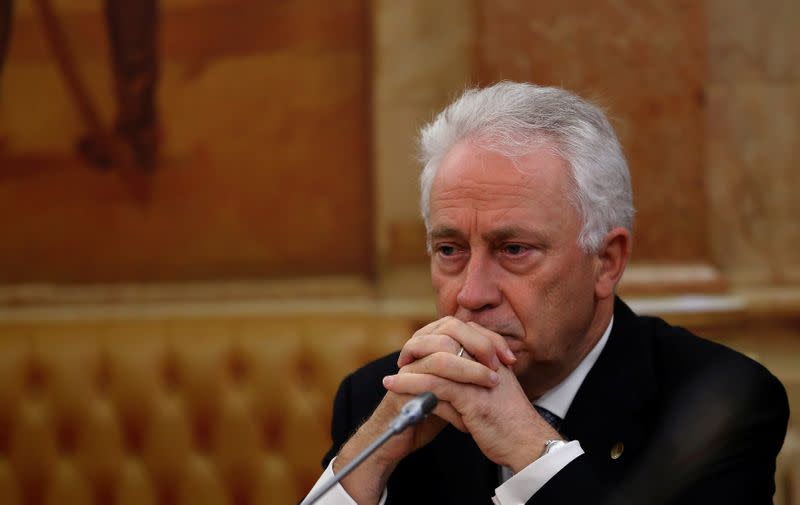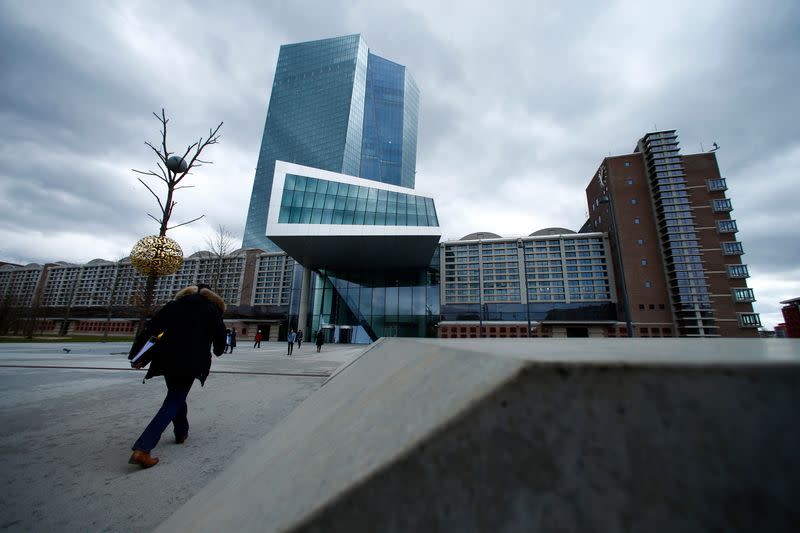ECB's Costa calls for TARP-style bad debt fund to relieve banks
By Andrei Khalip and Sergio Goncalves
LISBON (Reuters) - Europe needs a scheme similar to the U.S. Troubled Asset Relief Programme (TARP), adopted during the 2008 subprime crisis, to help its banks cope with the fallout from the COVID-19 pandemic, European Central Bank policymaker Carlos Costa said on Tuesday.
In a commentary sent to Reuters, the Bank of Portugal governor also warned that unless ways are found to support companies, corporate and household debts could become unmanageable in a deep recession, in turn pressuring banks.
"On the banking sector, the impact will reverberate through asset quality dynamics with increased non-performing loan ratios," wrote Costa, whose term ends this month.
"Systemic TARP-style solutions will be required at European level, even if implemented at national level."
Costa also called for additional flexibility in using a combination of state aid and EU rules to help national authorities ensure an orderly resolution for failing banks.
The TARP scheme allowed the U.S. Treasury to mass purchase illiquid, difficult-to-value assets from banks and other financial institutions so they could resume normal lending.
Costa warned that any such scheme should be politically led, to avoid a repeat of the heated bailout discussions seen during the euro zone debt crisis in 2010-13. Portugal was one of several countries, mainly in southern Europe, forced into painful austerity in return for a bailout.
He praised proposals for a 750 billion euro recovery fund within the long-term EU budget as a timely step in the right direction, but said an emphasis on reorienting business models risked failing to stop companies going bust in the short term.
EU governments have not yet agreed details of the fund, with some countries, led by the Netherlands, resisting plans for it to disburse grants rather than loans.
He likened the liquidity provided by the ECB via its asset purchases and by governments in the form of state-guaranteed loans to an umbrella that only gives temporary protection in the storm.
"Policy options need to be exploited to prevent the current corporate liquidity crisis from evolving into an insolvency crisis: avoiding the ‘zombification’ of companies and of the labour market is now of the essence," Costa wrote.
He said unviable firms need to be identified and carefully triaged to soften any labour market and social impact.
Costa added that insolvency procedures should be expedited to preserve value, and that countries needed to avoid national solutions that could undermine the EU's single market.
(Reporting by Andrei Khalip, Sergio Goncalves, Editing by Catherine Evans)

 Yahoo Finance
Yahoo Finance 

